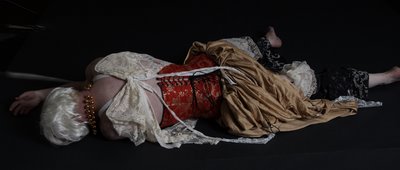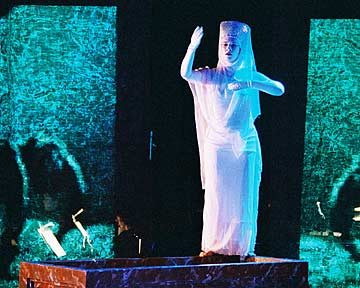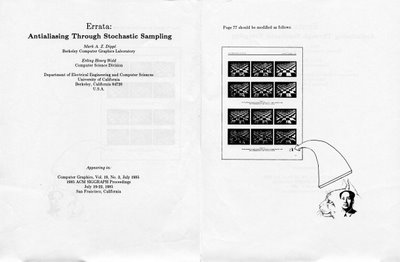Lou Harrison's Music Primer was one of many very influential and important books in my musical development. At the time I read it, I was rediscovering a certain melodic simplicity in my own work. His ideas shaped some of mine, but I was especially taken with one particular passage, somewhat outside of the world of music composition per se, but dealing with that which is most important to a career in the arts, namely that a pure career in the arts is an essential impossibility:
If you really have to be a composer and are attractive and uninhibited, then try and get yourself “kept” – whether by woman or man. This might be easier than undertaking a whole second career in order to be able to afford composing, and you might get a little restorative affection as well.
Unfortunately, I was stupid enough, and probably too inhibited at the time - my late teens, not to follow his advice, to try to make a go of the 'second career' path, to give up sleep, and not to take the high road: to flatback and think of England, to become a good wife, flipping my hair and asking on my knees for a bit more pin money from my loving husband.
But later in life I did figure out that the judicious - or injudicious - placement of my unit in a number of compromising positions could in fact be helpful to the bit of musical career that I eked out on the side. In the late-mid 80s I started working with choreographer and dancer Miss W_ on an extended series of pieces. The first and maybe the best was Crash, an hallucination on the already hallucinatory J.G. Ballard novel. My pal Henry Kaiser had recently purchased a Synclavier and a few of the local classical avant types were thrusting their bowls in his face and asking for a bit of the corn gruel drippings off its gleaming steel and black plastic but I had a key, haha!, since Hank and I were working on Secrets and Mysteries (aka Secrets of the Unknown) with Edward Mulhare, using the early sampler to write as much music as quickly as possible. I stole into his beautiful little studio and worked all night every night coaxing as many floating microtonal lushnesses as I could for Crash and Hagalaz and the others. And why, may one inquire, would I work my little ears to the ossicles to find the perfect romantic musical moment, the perfect twist of pitch ratios adding a glint of a knife to a pretty harmony? Because I was in love. And, when Miss W_ came to hear it for the first time, sitting in the dark of the studio late at night, the fullness of my gift fell upon her, parting her lips, spreading her legs ever so slightly. Later, at a restaurant far away, she looked into my eyes and told me of her most favored venereal pleasure, something so near and dear to my heart that my pulse quickened at the thought, and I flipped through a number of scenarios and possibly near-term advantages and pleasures, but, like everyone else who desires and desires so strongly, I hadn't quite thought through the rest of the story: the pain, the recriminations, the crying and the destruction and the loss, but, before that all came to pass, we spent ourselves through a burst of creativity that produced some of my still favorite works, and some of my still favorite memories: risky sweaty writhings under soft sheets, towels put down to catch the blood; hot tubs overfilled of naked lissome dancers, their supple fingers probing under the foaming jets; furtive quasi-couplings in cars, backstage before a performance, in the corner of a darkened gay bar; sweet shared conspiracies.
And at one of our performances at the Lab in San Francisco was a young choreographer named Robert Wechsler, just beginning to develop a new language of sinuous dances based on groups, canons and symmetries, where the dancers moved quickly through each other in seemingly impossible ways, who took a liking to me (and I'm sure Miss W_), and he kept in touch, asking me from time to time to contribute short soundtracks to dances, e.g. Modules and Loops. Not long after, Robert developed some financial complexities in the US, and moved to Nürnberg to allow things to cool. By the mid 90s I had forgotten all the lessons learned with Miss W_ and was embarking on another long walk off a short pier with Ms. A_. Once again, I enjoyed a burst of creativity, my pen pouring out one inspired score after another, intending to woo and succeeding again beyond my expectations and beyond my ability to deal with it. Once again, I found myself pressed against a lithe body, this time straddling me, allowing my hands to wander over her prepubescently boyish frame, a suggestion of immodest nature whispered to me, hot breath on my ear, kisses on my face. Once again, I was caught up in clandestine plans, this time of a global nature, a vast intrigue tapping into a worldwide network of co-conspirators. I accepted an offer from Robert to come to Europe to work with his company, Palindrome, on an evening of dance and music using a set of interactive technologies: a MIDI controlled pipe organ, dancer-tracking software, heartbeat monitors, the very new and pre-browser Internet. And surprise, it so happened that Ms. A_ was working on a project in Prague, a short train ride away, and so came to visit, pleasantly insinuating herself in the company and, after I left, performing on tour with them through Austria.
While performing with Palindrome in Klagenfurt in the south of the Austrian republic, Ms. A_ left a tape with the theater of my first chamber opera, A Little Girl Dreams of Taking the Veil. Although they didn't care much for the production, a reflection I believe on the cultural divide between the Old and New World, they found themselves drawn back to the music a number of years later and asked me if would be willing to have them perform it and, if possible, to develop a version in German. Although, by the time this came about, my life had plummeted into chaos and into an even more complex sexual by-now-quadrangle including another Ms. A_, a young woman of great vigor and blondness who evinced in me a before unknown tendency for obsessive stalking behavior, one of the high points of my life came while descending into the Klagenfurt airport, a Tyrolean Air flight attendant in an absurdly sexy dirndl leaning over me, noticing a photograph of a woman's mouth covered in blood in the newspaper of the passenger in front of me, seeing my name in the caption of that gory image, landing a few moments later and being greeted as Maestro by the theater director, sweeping me into the dress rehearsal and a magical otherworld, jetlagged and fagged and fashed. The first Ms. A_, who was again performing in the Easter bloc, once again came to meet me, but this scene quickly descended into the by now familiar recrimination, tears, anger, drama and worse and worse. As Ali Tabatabai once told me, we theater folk know not where the stage ends. But, just possibly, do the means justify the terrible endings?
And this now reminds me: a dream-like trip to Amsterdam with a friend to live out one of her fantasies: that of having two young Dutch boys simultaneously. We tripped and traipsed and shagged our way through the red-light district looking for connections to these ultimate striplings, the perfect combination of enthusiasm and ability and fresh-faced boyishness. In one of these fact-finding encounters of flat-backing fieldwork, the two of us were huffing and puffing and panting over a quite amazingly beautiful and busty Dutch fille de joie who, hearing of our desires, gave us her mobile number and invited her to her wedding in Rotterdam the next week, assuring us that her soon-to-be husband and one of his friends would without doubt fill the bill and that having some other artistic & libertine types there would surely be of benefit to all.
And so, after Klagenfurt and the collapse of the entire quadrangle in flaming death, and as a period of even more intense sluttiness and my relationship with Lynne "die Zweite" began, the Max Ernst museum in Brühl and I planned to have the Little Girl opera performed as part of the dedication of an Ernst sculpture, newly installed. I showed up in town with my freshly blue hair, gathering some curious stares from the locals, overseeing the installation of an outdoor stage for the production, the arrival of the ensemble and all the rest. Also, at this time, Sub Pontio Pilato, also recently translated into German, was heading for its quirky premiere in Austria where a certain Miss B_ was starring, who wanted to come up to Brühl to meet me and see something of what I do. I was feeling my oats, as virility comes with success, and something happened which my gentlemanly upbringing does not allow me to divulge. Even though, with some familiarity, this led to some drama back home with the Empress, Miss B_ and I cemented a personal and artistic connection so that, after the Pilate premiere, she went back to St. Gallen and played the Credo from the opera for the musical director at the Abbey. After an Austrian review of Pilate claimed that the Credo must have come from a pre-existing Mass, I wanted to create such a thing: a crucifix of pieces overlaid, a pre-existing piece from an alternate youth, a time of innocence and faith, before the devil grabbed hold of my soul and I made that Faustian bargain, taking the path of sin, the path of success.



































